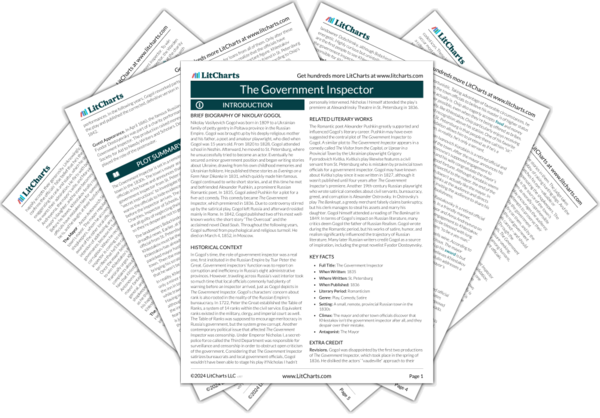When the shopkeepers expose more of the mayor’s misdeeds, Khlestakov acknowledges how terribly corrupt and immoral the mayor is. However, even though Khlestakov may not be as crooked as the mayor, he still isn’t a good government official. He steals money from the shopkeepers, and he allows Osip to accept luxurious food items as bribes. Neither Osip nor Khlestakov can resist food, which symbolizes pleasure and self-indulgence. Worse, Khlestakov knows he’s only a clerk, has no real governmental power, and can’t actually help the shopkeepers. Khlestakov makes false promises to them only so he can look more impressive.
